Existing User Log In
New User Registration
Register for a free account to gain full access to the VGChartz Network and join our thriving community.



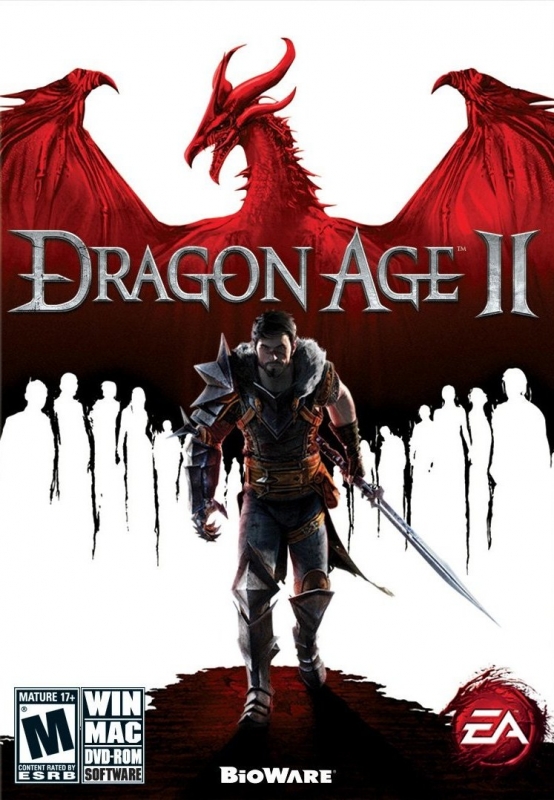

America - Front
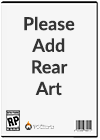

America - Back

Dragon Age: Origins is one of my favorite PC RPGs. It was full of detail, nuance, and tributes to its Baldur’s Gate origins. It’s no surprise that it turned out great, as the game was famously in development for more than five years. Enter Dragon Age II, released less than two years after the first, and it’s understandably not as large-scale an experience as the original. However, while Dragon Age II is a good game, it will likely not satiate everyone who was hoping for a true sequel to the original
Dragon Age II is almost like a reboot to the series. The new main character, Hawke, has no relation to the Grey Warden hero of the original game. Only a few passing references are made to your decisions in the first game, which is a bit disappointing, as it makes all the time you spent in it feel almost irrelevant. Characters from the previous game pop up at times, but these are cameos more than important plot points. The Free Marches seem to have little care for the fate of Fereldan, and the plot focuses on new conflicts entirely.
A refugee from the blight-scarred Fereldan, Hawke and his family flee to Kirkwall, an enormous city of the Free Marches, in the hopes of finding a new life. Hawke’s story is a more personal one than the hero of Origins, and while this does give you a good connection to Hawke himself, it really limits the scope of the world. The entire game takes place in Kirkwall, with small ventures to the surrounding area, and because of this interaction is limited to only the residents of Kirkwall and the surrounding areas. Unlike post-Origins Fereldan, you’ll have little connection to the Free Marches at the end of your adventure. The story is solid, but the pacing is poor, and nothing is tied together at all until the end. 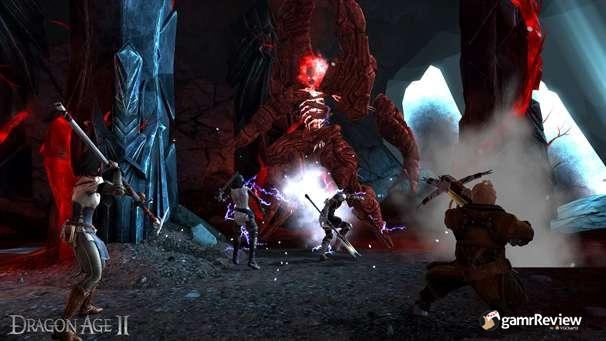
In addition to narrative problems, the new scroll wheel grossly over-simplifies the dialog in the game, and holds the player’s hand through his interaction with the characters. Without the ability to select what Hawke says directly, you’re really just picking a tone, and watching Hawke act it out. Dragon Age II is much more following a character than playing a role, and the moral ambiguity of its predecessor is significantly reduced. While this works in Mass Effect, it feels like it directly conflicts with the features that made Origins unique. As a whole, it’s one of BioWare’s most forgettable stories.
If BioWare excels at one thing, it’s character design, and the characters are certainly the best part of Dragon Age II. One returns from Origins (sadly it’s Anders, and he’s still annoying), but the others are new companions for this game (although Isabela and Merrill had short parts in Origins as well). Each of them is a new and interesting personality, and in true BioWare form, they have entertaining conversations as they follow you around in your party. Each character also has a number of character specific quests which have some of the best development you’ll find in the game. Unfortunately, the characters themselves aren’t always designed to work well together. For example, if you want Merrill in your party, you’ll find that pursuing her interests causes discontent in almost every other party member. This can be frustrating when trying to use favorites.
Dragon Age II is played on similar maps to Dragon Age: Origins. Each part of the game is divided up into small maps and dungeons, and you can travel between major locations quickly by selecting them on an overhead map every time you leave an area. Unfortunately, Dragon Age II feels tiny compared to its predecessor, which had a number of large and lively cities. Dragon Age II only has one such location, Kirkwall, and it’s where you’ll spend the entire game. Even this city really does not feel as alive as the cities of Fereldan. You can explore the various districts of the city and a few surrounding areas. The entire city is decorated in simple grays and browns, however, and there’s not a lot of incentive to explore. Surrounding maps don’t offer much room for exploration either and include nothing but a few simple, and dull, outdoor paths. The only advantage to exploring is discovering new crafting reagents.
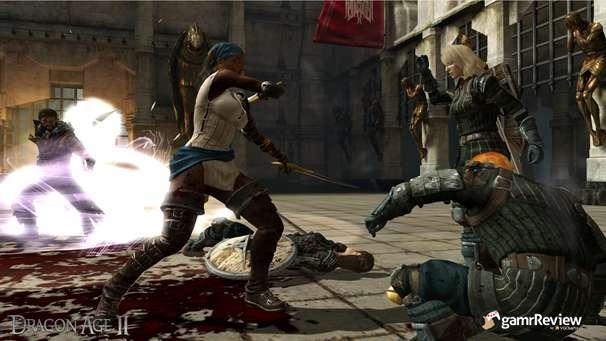
As with Origins, much of Dragon Age II will be spent in dungeons. Unlike Origins, there is absolutely zero variety in these. The number of genuinely different dungeon designs in the game can be counted on one hand, and include a cave, a mansion, a thieves hideout within the city, and the Deep Roads (which you’ll only enter twice). These maps will be repeated numerous times, with only minor changes to the layout on each new quest. It’s incredibly repetitive and by the end of the game you will dread seeing Dragon Age II’s cave design ever again. The quests themselves are standard RPG fair and with a few exceptions, are forgettable. Fortunately, the few that are memorable can have a great impact, thanks to good writing and voice acting.
Of course, the greatest concern (especially for PC gamers) was the revamped combat in Dragon Age II. While these fears are not entirely unfounded, Dragon Age II’s combat is enjoyable and fast-paced. That said, it’s hard to call it an improvement. Dragon Age: Origins was an intensely tactical game, where the position of every character and close management of every skill completely changed the outcome of combat. Designed for friendly fire, the game required rogues to be behind enemies to backstab, warriors to be within range to use their skills, and mages to aim their spells so as not to damage their party members. None of this is present in Dragon Age II. Buffs are simpler, and require far less shuffling in the average battle, and your characters automatically move to positions to use their moves. Even the mage’s spells “snap” to enemies when casting, and are designed to be far too large to work with friendly fire on.
While friendly fire is present in Nightmare Mode, the game is so clearly designed to not work with it. From the wide range of spells to the constrained battlefields, it’s silly to even play in Nightmare Mode, and it should not have been included in the game. Difficulty in the game in general is down quite a bit, and surviving depends more on how fast you can shoot off as many skills as possible than actually managing things appropriately for the situation. Even healing has seen some big cuts and now is fairly ineffective. You can survive the game quite easily on just crafted potions, which are much more effective than the healing skills present in the game. 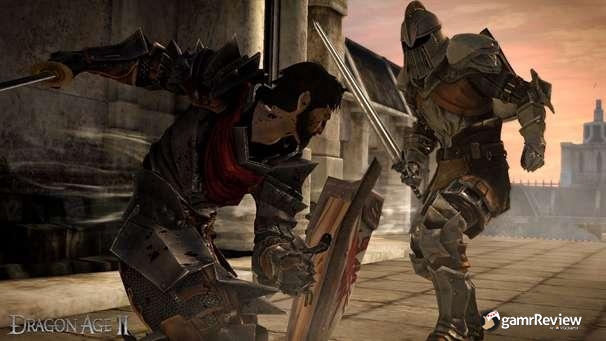
The one major strategic element introduced in Dragon Age II is “cross-class combos” which gives each class status effects they can generate, such as “brittle” for frozen targets by mages (which makes melee attacks do more damage), and “stagger” for warriors (which lowers defenses). This allows some simple combinations of skills, which increase damage drastically when utilized. While the system is not particularly tactical or mentally engaging, it is enjoyable. These aspects are identical on PC and consoles, aside from console players needing to button mash for basic attacks, and keyboard gamers having 1-0 on the keyboard as hotkeys for abilities. Unlike Dragon Age: Origins, there's not a major gap in the gameplay experience.
Another major simplification in the sequel is in the armor and equipment system. You can no longer change your party’s basic armor in any way, but merely add to it through gifts and special items. Rings, trinkets, and weapons can all be changed, but party customization has been severely limited. Hawke, however, does have more customization options. His helmet, armor (includes chest and legs), gloves, and boots can all be changed. This means every single piece of loot in the game that you get for these slots is for Hawke, or to sell to vendors. The inventory system itself is now also grossly simplified, with crafting now simply requiring you to “discover” reagents to create them, rather than actually store them in your inventory. This does mean less navigation of bags, but it also means the crafting system is really just a store that you can buy new things from as a reward for simple exploration.
The visual presentation is easily the worst part of Dragon Age II. The game is incredibly dull looking and has far less diversity than its predecessor. The repeated assets and dungeon designs are common enough as to be distracting and remove you from immersion in the game. Textures, armors, plants, and even the NPCs themselves are more plain and lifeless. Only a few creatures (such as the Qunari) stand out much at all. This all adds up to an unacceptably poor looking game, and no, the high resolution texture pack on PC does not fix this. It’s an issue of art, not resolution. On the bright side, the console versions are not significant downgrades from the PC version this time around, but no one wins here. Spell effects are visceral and satisfying, but some of the melee skills just look silly and overly acrobatic. There is some minor stuttering on the console versions as well, during combat. 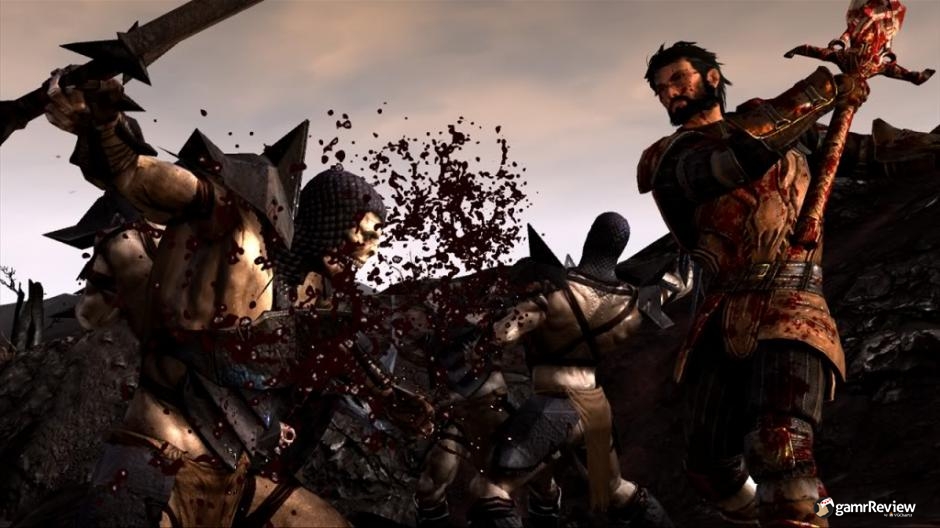
Audio is more of a mixed bag than past BioWare games. Voice acting remains stellar and is among the best in the industry, as we have come to expect from the developer. Unfortunately, the music is far more forgettable than usual and tends to match the bland art design. There are also a number of bugs present throughout the game, including graphical and gameplay glitches. My game crashed a few times, and I ran into a number of bugs including one in which my character was constantly removed from combat during a fight, healing to full as he fought. I also went on a loyalty quest without the character in my party, and my party proceeded to speak to an invisible specter who would respond in turn. The game also locks up on PS3 and 360 and has glitches on those platforms as well. These include a now-famous glitch for infinite experience on 360, so this is not a platform-specific issue.
While not nearly as content-filled as Dragon Age: Origins, Dragon Age II is a pretty long and fleshed-out game. I spent 50 hours on my play-through, and I completed every sidequest and loyalty quest available in my game. Speeding through these, the game could probably be completed in more like 30 hours, but since some of the best interactions in the game are in the loyalty quests, this is not recommended. Unfortunately, a lot of this design is very repetitive and involves trekking through the same bland dungeons and city streets without a lot of variation in location, enemies, or objectives. You may find yourself tiring of the game before you complete everything.
Dragon Age II is a good game and I think it’s important that people understand that. What it isn’t is an incredible game, or even a great game, and it certainly doesn’t feel like a worthy sequel to Origins. BioWare sought to make the console and PC experiences equal and they have pretty much succeeded in that, but the result is a loss in quality all around. While great characters and voice acting remain, BioWare’s hallmark ability to create a living, breathing world falls flat in this sequel. The world is dull and dead and the lack of visual style and variety makes it get old fast. Combat is certainly fun, but former Origins PC gamers can no longer get a strategy fix from it. If you’re interested in a fun romp around an action RPG, pick Dragon Age II up, but if you’re a Dragon Age fan looking to continue what you loved about Origins, you may be better off skipping it altogether.










| Total Sales |
0.00m
Japan |
0.23m
NA |
0.33m
Europe |
0.08m
Others |
0.63m
Total |
| 1 | n/a | 75,882 | 46,437 | 22,948 | 145,267 |
| 2 | n/a | 23,348 | 8,973 | 5,732 | 38,053 |
| 3 | n/a | 14,599 | 7,653 | 4,094 | 26,346 |
| 4 | n/a | 8,326 | 5,351 | 2,582 | 16,259 |
| 5 | n/a | 5,547 | 3,680 | 1,749 | 10,976 |
| 6 | n/a | 3,681 | 4,440 | 1,660 | 9,781 |
| 7 | n/a | 1,790 | 5,880 | 1,737 | 9,407 |
| 8 | n/a | 1,088 | 3,777 | 1,107 | 5,972 |
| 9 | n/a | 958 | 2,413 | 746 | 4,117 |
| 10 | n/a | 1,158 | 1,395 | 522 | 3,075 |
|
|
|
|
|
|
|
|
yahoocomReborn
posted 08/12/2011, 10:03
Let's go to Skyrim PC sales page to see what nilli can say? Haha Message | Report |
|
|
yahoocomReborn
posted 08/12/2011, 10:02
Lt's go to Skyrim PC sales page to see what nilli can say? Haha Message | Report |
|
|
|
|
|
yahoocom1984
posted 22/10/2011, 03:18
nilli that fag doesn't troll on this page, why? He probably is a PS3 fanboy Message | Report |